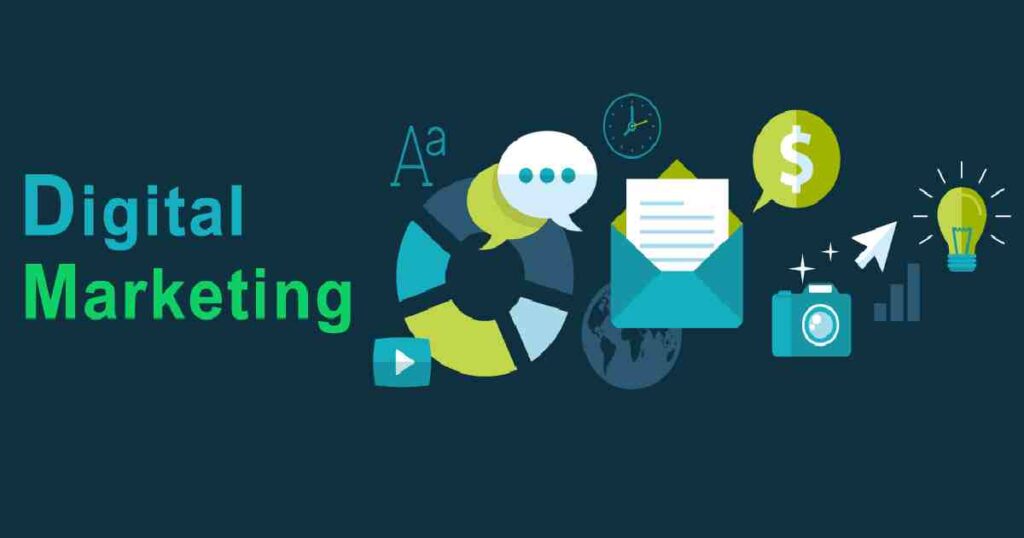Digital Marketing Frequently Asked Questions
Businesses are constantly looking for effective ways to connect with their target audience and achieve online success in today’s digital age. In this regard, digital marketing has emerged as a powerful tool, providing a diverse set of strategies and techniques for promoting brands, products, and services. Many people, however, still have questions about digital marketing and how it can help their businesses. In this blog post, we will answer some of the most frequently asked questions about digital marketing to help you better understand this ever-changing field.

1. What is Digital Marketing?
Digital marketing refers to the use of various online channels and platforms to promote products, services, or brands to a target audience. It encompasses a wide range of strategies, including social media marketing, search engine optimization (SEO), content marketing, paid marketing, email marketing, and more.
2. Why is Digital Marketing Important?
Digital marketing allows businesses to reach their target audience directly, engage with them on various online platforms, and measure the effectiveness of their marketing efforts in real time. It’s cost-effective, offers global reach, and provides ample opportunities for personalization.
3. What are the key components of a digital marketing strategy?
Social media marketing, content creation, SEO, email marketing, paid advertising (PPC), influencer marketing, and analytics are common components of marketing strategy. The combination of these elements is determined by the company’s goals and target audience.
4. How can Digital Marketing Help my Business?
Digital marketing can help your company in a variety of ways. It can:
- Increase brand awareness and visibility.
- Drive relevant traffic to your website.
- Increase conversions by generating qualified leads.
- Increase customer loyalty and engagement.
- Provide useful information about customer behaviour and likes.
- Improve your online credibility and reputation.
5. How does SEO Work?
SEO (Search Engine Optimization) is the process of optimizing a website’s content and structure to improve its visibility on search engines like Google, Bing, etc. It involves using relevant keywords, creating High-quality content, optimizing meta tags, building backlinks, and ensuring a user-friendly website.
5. What is Social Media Marketing?
Social media marketing involves using social media platforms like Facebook, Instagram, Twitter, and LinkedIn to connect with the target audience, build brand awareness, and engage users through posts, ads, and interactions.
6. How can I measure the effectiveness of my digital marketing campaigns?
To assess the success of your marketing campaigns, metrics such as website traffic, conversion rates, click-through rates (CTR), engagement metrics (likes, shares, comments), and return on investment (ROI) are commonly used. These metrics can be tracked using a variety of analytics tools.
7. What is PPC Advertising?
PPC advertising (Pay-Per-Click) is a type of online advertising in which advertisers pay a fee each time their ad is clicked. This model is popular in search engine advertising (such as Google Ads) and social media advertising (such as Facebook Ads).
9. What is Content Marketing?
Content marketing is the creation and distribution of valuable and relevant content to attract and engage a target audience. This can include blog posts, articles, videos, infographics, and more.
10. Can you recommend any Tools or Platforms for Digital Marketing?
Here are a few tools and platforms that can be used for various aspects of digital marketing:
Google Analytics: Provides in-depth information about website traffic, user behaviour, and conversions.
Keyword research, competitive analysis, and SEO optimization are all aided by SEMrush.
Buffer is a social media management platform that allows you to schedule and analyze posts for multiple platforms.
Mailchimp: An email marketing tool for creating and automating email campaigns.
Hootsuite: Aids in the management and scheduling of social media content across multiple platforms.
WordPress is a well-known content management system (CMS) for building and managing websites and blogs.
Remember to investigate these tools and platforms to find those that best meet your specific digital marketing requirements.
